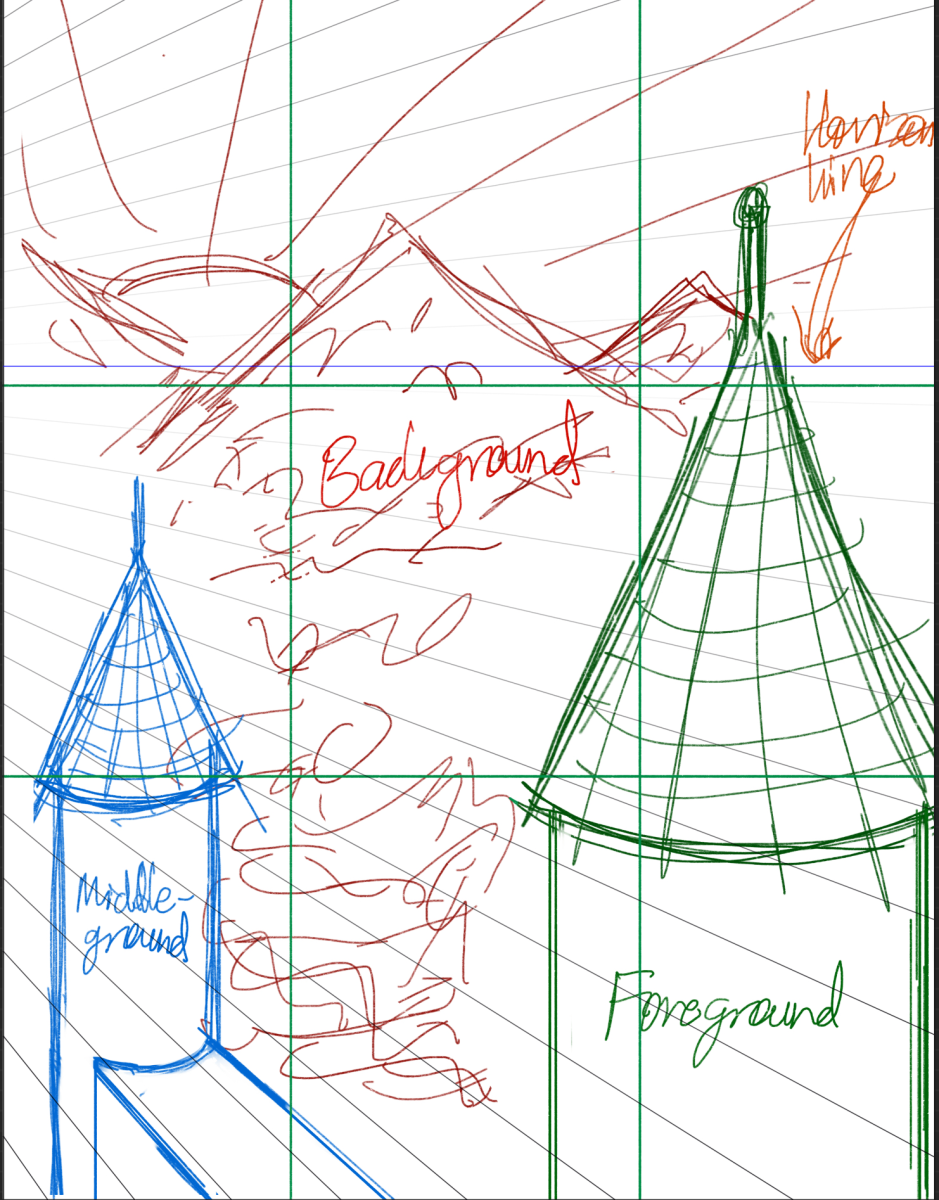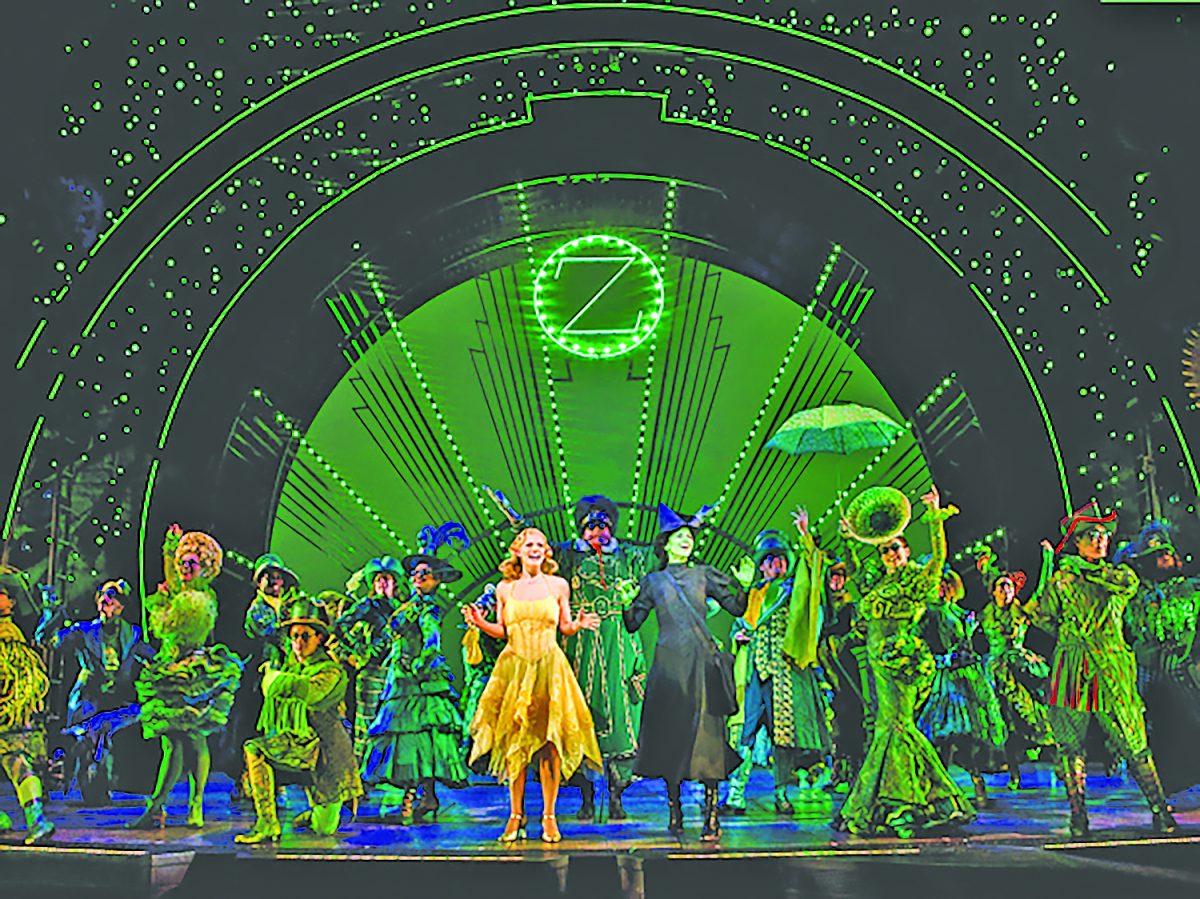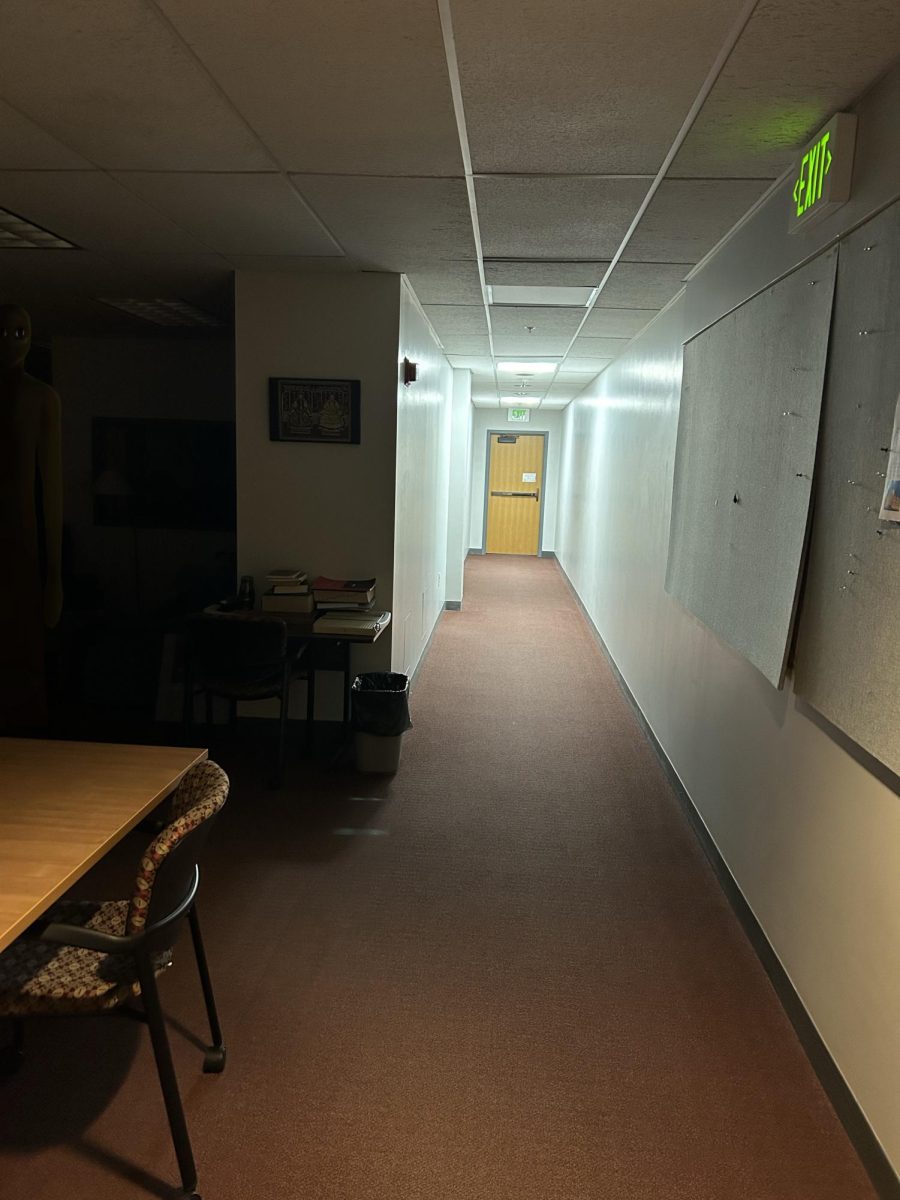For the second time in nearly 20 years, “The Diary of Anne Frank” has graced the Dibden Stage. This time around, Director and Professor of Fine and Performing Arts Russ Longtin, went with Wendy Kesselman’s version of the play. This show premiered with a matinee on Oct. 31 and nightly showings Nov. 1-3.
The cast, made up of JSC students, brought to the stage a realistic and emotional depiction of life during the Holocaust.
Cast as Anne Frank was Sam Kilbride, a junior and Musical Theater major who kept the stage vibrant and lively, as though she truly was a young 13-year-old girl. The part of the kind and wise Otto Frank was played by Marcus Provost, a junior and Musical Theater major who was accompanied by Alijah Gauthier, a sophomore majoring in Theater and Literature, who played his solemn wife- Edith Frank.
Margot Frank was eloquently played by Danielle Godjikan, a junior and Musical Theater major. The part of a shy and awkward Peter Van Daan was played excellently by Adam Pilarski, a freshman here at JSC.
The strict and serious parts of Mr. and Mrs. Van Daan were played by Dan Schurman, a super senior graduating with degrees in both Musical Theater and Theater/Drama, and Kate Kendall, a second year transfer student to JSC. The loving and warmhearted role of Meip was played by Heather Vize-Willey, a junior and Theater major while another kind friend, Mr. Kraler, was played by junior Dakota Senesac.
Zane Watkins expertly played the cranky-old-man role of Mr. Dussel, even down to the limp. And freshmen Shane Weibel, Thomas Gunn, and Dylan Ballou played the terrifying Nazi roles of first, second, and third men.
This play takes place in the attic of a warehouse in Amsterdam, Holland, during WWII. The Nazis are capturing Jews and sending them to concentration camps and anyone found to be hiding them would be punished severely.
Meip and Mr. Kraler take a chance and decide to house the Franks, the Van Daans and Mr. Dussel in an attic until the war is over, bringing them food and provisions daily. During the day when there are workers, the attic must stay silent, but come nighttime the families are free to move about at will.
This adaptation of “Anne Frank’s Diary” is very much different from the first one produced on the Dibden Stage. The first version had taken mostly positive diary entries, where this one explores a wider range of issues.
One major aspect of this plot seemed to be Anne’s exploration of her own sexuality. There were scenes where she talks about getting her period, having the urge to touch herself and her deep feelings for Peter.
Anne’s relationship with Peter blossoms in front of the audience throughout this play. You see them grow from mere acquaintances, to enemies, to friends and to lovers- only to be ripped from each other’s arms by the Nazis.
Kilbride and Pilarski have a good stage presence and chemistry. They interacted the way you would expect two young adults “in love” to act.
The relationship between Anne and her father, played by Provost, was also very genuine and realistic. Kilbride and Gauthier also did a very good job with their strained mother-daughter relationship. The tension was almost palpable.
Stage Managers for this production were Bonnie Clevereley a Theater Arts and Technical Theater major, and Jasmine Carpenter, majoring in Theater/Drama.
Scenic Designer was Adam Higley, a senior Psychology and Technical Theater major, Master Carpenter was Nick Pepe, and Props Master was Taylor Shaw assisted by Liz Thompson and Kate-Lynn Pal, while the set was constructed by JSC’s Stagecraft class.
The back-drop was of the attic above the warehouse in Amsterdam, Holland during World War II. The walls were perfectly aged and discolored the way you would expect an attic to be. The refrigerator, beds, blankets and dining set also fit the era.
Senior Liz Spier, an English Literature and Education major, assisted by Holly McDonald, also a senior, designed the costumes for this play. Outfits of the Franks and Van Daans were plain pants, skirts, and shirts that had the symbolic Star of David sewn onto the arms, while Meip and Mr. Kraler had nicer, fancier clothes, true to their parts.
Erin Keyes, a sophomore, was the Makeup Designer for this production, keeping it simple and understated whilst the audience was still able to make out faces and expressions.
Ethan McGovern, assisted by Master Electrician Michael Browkoski took care of the lighting for the play keeping the whole stage lit when there was action, and dimming it to a single spotlight whenever Anne recited one of her diary entries.
Chazz Nelson was the Sound Designer and AV was handled by Shannon Edmonds. At times the audio, acting as a radio, was hard to hear due to actors’ footfalls on the stage, but lines recited by actors were crystal clear and conveyed effortlessly.
Longtin has been in theater for over 40 years and has long been attracted to emotionally intense dramas. Directing this play, he did an excellent job helping the actors assume the emotional burdens of the characters and convey them convincingly and accurately to the audience.
For this reviewer, the best scene of the play occurred when the Nazis came and captured the families. The scene was beautifully blocked, and at first you did not notice them creeping on stage as your attention was directed towards the other actors.
But then, suddenly, there is screaming, and running around, and I felt true terror for them. The compressed violence was sudden, unexpected and realistic. For that moment, all of us were in a warehouse in Amsterdam as that invisible wall between actors and audience vanished.
At the close of this play, not many eyes in the room were dry after Provost’s monologue that wrapped up the show. He, as Otto Frank returning to the warehouse, explained what had happened once the Nazis captured them, how he never did see his wife or children again. He spoke of Anne fondly and cried, not through the whole speech but at the parts that truly were emotional. It didn’t seem as though Provost had rehearsed this over and over, but as if the events he was recounting had actually just happened to him.
The time spent watching Longtin and his students take us deep into the troubled and courageous lives of this iconic family was time very well spent. The setting was true to the era, and the actors truly seemed to get inside their roles. Each and every one of them convinced me of who they were and I didn’t doubt it for a second.






